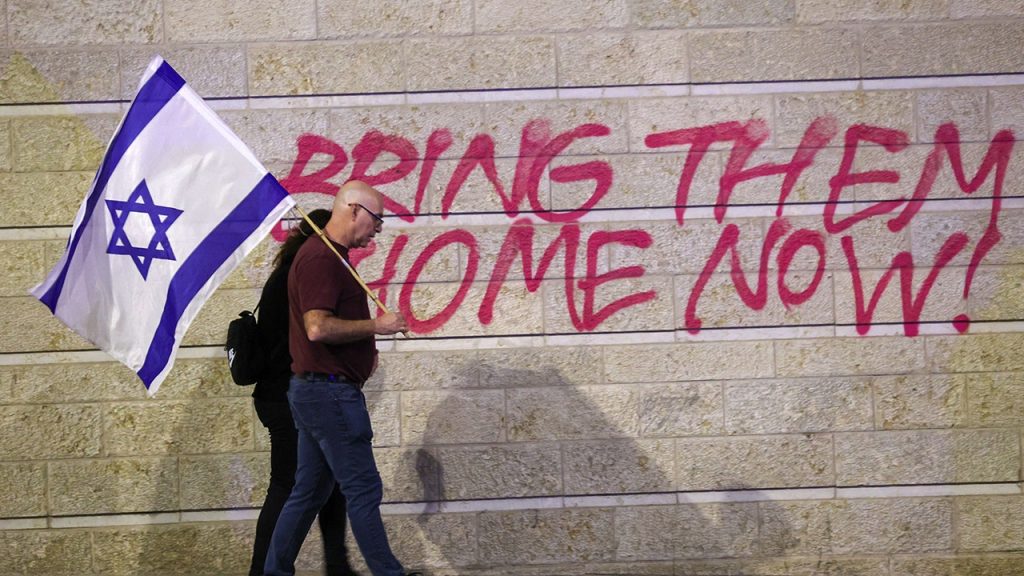Paragraph 1: A ceasefire agreement has been reached between Israel and Hamas, ending a devastating conflict that began with Hamas’s attacks on October 7, 2023. The deal, confirmed by sources close to the negotiations and Hamas officials, includes the phased release of over 30 Israeli hostages. The conflict resulted in the deaths of over 1,200 Israelis, the capture of more than 250, and thousands of casualties on both sides. While Israeli Prime Minister Benjamin Netanyahu’s office has yet to officially confirm the agreement, President-elect Donald Trump has lauded the deal as a historic victory, attributing it to the perceived strength of his incoming administration. He expressed his relief at the impending return of American and Israeli hostages.
Paragraph 2: The ceasefire agreement was brokered by Qatari negotiators with the assistance of Egyptian intermediaries and significant involvement from both the outgoing Biden administration and the incoming Trump administration. The deal required delicate maneuvering and strategic pressure, as concerns lingered about Hamas’s potential to rearm in Gaza and internal divisions within Netanyahu’s governing coalition. Crucially, a meeting between Netanyahu and Trump’s incoming Middle East envoy, Steve Witkoff, played a pivotal role in overcoming the final hurdles to the agreement. Witkoff’s assurances reportedly persuaded Netanyahu to accept the terms despite strong opposition from right-wing elements within his coalition, who threatened to withdraw their support.
Paragraph 3: The hostage release is structured in phases, beginning with the release of three hostages on the first day, followed by weekly releases. Priority will be given to women, children, and men over 50, with younger men in humanitarian cases considered later. The process will involve alternating announcements of surviving hostages and confirmations of those who did not survive their captivity. The complex operation will require intricate coordination between various Israeli agencies, including the IDF, Shin Bet, Israeli Police, Ministry of Health, as well as the International Red Cross and Egyptian authorities. The goal is to release all 33 Israeli hostages, including seven Americans, over a 42-day period.
Paragraph 4: The first phase of the hostage release will focus on civilian women, children, and female soldiers. Subsequent releases will include elderly men, with the final individual in this group expected to be freed on the 42nd day. The second phase, commencing on the 16th day, will address the release of younger men, soldiers, and the return of remains. Netanyahu has assured the families of hostages that the agreement accounts for every captive. In exchange for the hostages, approximately 1,000 Palestinian prisoners will be released. However, those convicted of murder will be prohibited from returning to the West Bank and will instead be sent to Gaza, Qatar, or Turkey.
Paragraph 5: Beyond the hostage release, the ceasefire agreement also outlines provisions for substantial humanitarian aid to Gaza. Up to 600 trucks of supplies are expected to enter Gaza daily. Displaced Gazan residents will be permitted to return to the northern part of the territory by the 22nd day. Qatar and Egypt will oversee vehicle inspections, while pedestrian crossings will be exempt from checks. The IDF will withdraw from the Nitzarim corridor but maintain a limited presence along the Philadelphi Route, aiming to balance security concerns with the need for humanitarian access.
Paragraph 6: The agreement comes amidst limited intelligence on the hostages’ conditions, although assessments suggest that most are still alive. Before each release phase, Israel will receive updates on the hostages’ identities and health status. The International Red Cross will play a critical role in overseeing the transfer of hostages from Gaza to Israel, ensuring their safety and managing logistical complexities, including crowd control. Upon arrival in Israel, the hostages will undergo identity verification and initial questioning by Shin Bet and the IDF. Medical teams will be stationed at the border to provide immediate care, and those requiring further treatment will be airlifted to hospitals. Following medical attention, the hostages will be reunited with their families. Israeli security forces are meticulously preparing for various contingencies to ensure the operation’s smooth execution and maintain stability during this sensitive period. The coming weeks will be fraught with emotion and anticipation as Israel awaits the return of its citizens.

